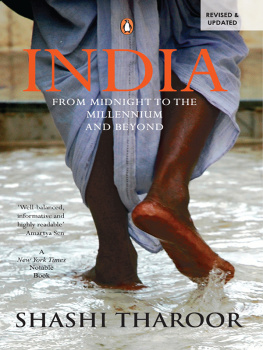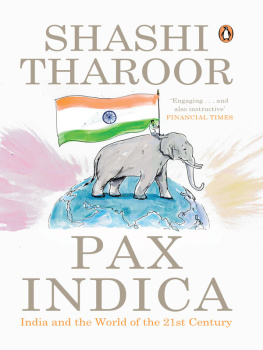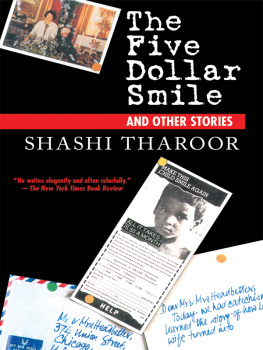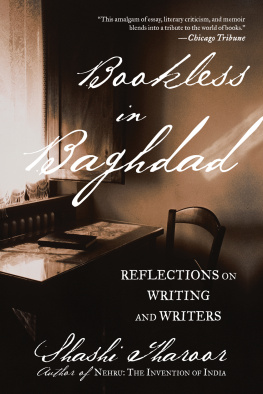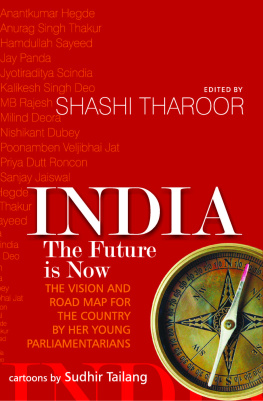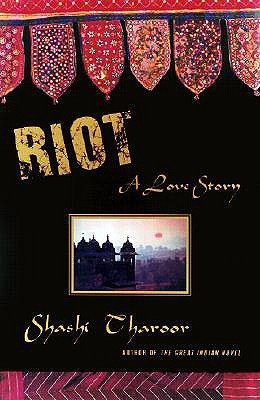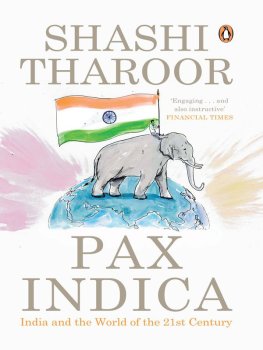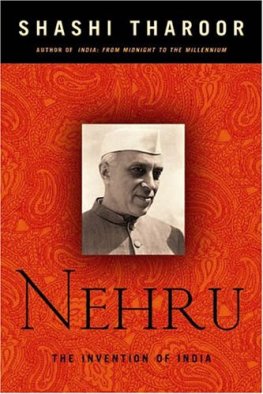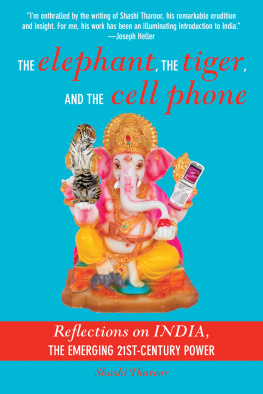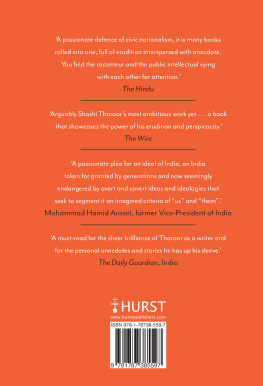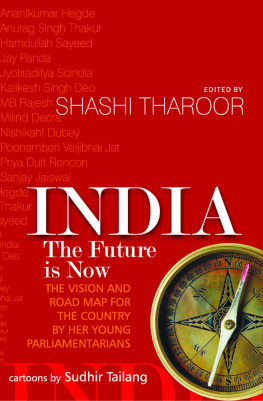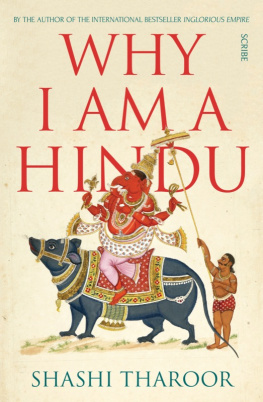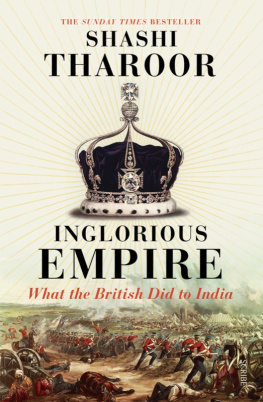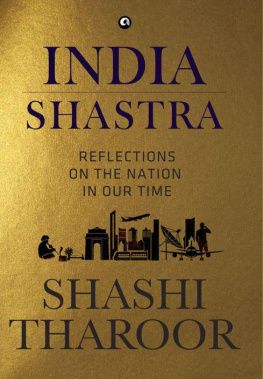Shashi Tharoor is the prize-winning author of ten books, both fiction and non-fiction, and a widely published critic, commentator and columnist (including for The Hindu, Times of India and Newsweek). In 2007 he concluded a nearly twenty-nine-year career with the United Nations, including working for refugees in South-East Asia at the peak of the boat people crisis, handling peace-keeping operations in the former Yugoslavia, and culminating as the Under-Secretary-General for Communications and Public Information. In 2006 he was Indias candidate to succeed Kofi Annan as UN Secretary-General, and emerged a strong second out of seven contenders. Dr Tharoor earned his PhD at the Fletcher School of Law and Diplomacy at the age of twenty-two, and was named by the World Economic Forum in Davos in 1998 as a Global Leader of Tomorrow. He was awarded the Pravasi Bharatiya Samman, Indias highest honour for overseas Indians.
Praise for the Book
Shashi Tharoor embarks on a journey from midnight to millennium, trying to find the answer to the paradox that is India, to discover the essence of the Indian identity, if there is one, and to test the truth of the prophecy of the British historian, E.P. Thompson, that describes India as the most important country for the future of the world. Indians will soon comprise one-sixth of the worlds population and therefore, the choices they will make are bound to resonate even in areas that they may not directly influence
Telegraph
Even as Tharoor forthrightly discusses the sectarian violence that has ripped through the country, the corruption that is rife in the ranks of the Indian administrative service, and the difficulties that face a nation in which 48 per cent of the population remains illiterate, he still writes with a certain optimism about the future
Business World
[Tharoors] engagement is with the conflicting vision of an imagined India in the diaspora. The book is an intervention in the ongoing fight between the overseas Indian Manhattan liberals and the overseas friends of the BJP
India Today
Tharoor has his own scheme of values and clear commitments. First, his commitment to democracy: with all its faults, democracy as it is practised in India is better than the alternatives. Next is his commitment to Indias pluralism, one of the main contributors to its special greatness as a nation, as a singular land of the plural. Then his commitment to secularism with its concomitant value of tolerance, and his opposition to religious fundamentalism
Frontline
Informed, insightful, seldom boring, often moving, this is a one-from-the-heart work where substance takes primacy over style. Tharoor writes feelingly and well, on issues as diverse as Indian socialism, secularism, job reservations, his childhood discovery of the schedule caste difference, Non Resident Indians including NRI/Italian-turned-Empress Regina: Sonia Gandhi nee Maino of Turino
Outlook
Whats fascinating is the way he weaves the past and the present, facts and legends and personal anecdotes and memories into a wonderful tapestry. The mirror he holds up neither distorts nor flatters. If it shows up the ugly warts, it also reflects the positive points
Business Standard
A work of remarkable depth
The Hindu
Few books in recent years, if any, offer such a comprehensive overview of India... Shashi Tharoor is a fluid and powerful writer, one of the best in a generation
New York Times Book Review
Hard-hitting, powerfully analytical and supremely articulate
Newsday
Tharoor is a thoughtful and well-informed observer... He writes elegantly and often colorfully... When he gets down to India as a concrete personal experience, everything seems new and fresh
New York Times
A literate and affecting panorama of the worlds largest democracy
Publishers Weekly
In loving memory of my father
C HANDRAN T HAROOR
(December 17, 1929-October 23, 1993)
who taught me to believe in
an India for Indians,
this book is dedicated
to my mother
L ILLY T HAROOR
It would not matter what kind of mess they madeand they would make a mess, if they governed themselves, the people of India. They would probably make the greatest muddle possible.
D. H. Lawrence, Aarons Rod
My legacy to India? Hopefully, it is 400 million people capable of governing themselves.
Jawaharlal Nehru
If there is one place on the face of the earth where all the dreams of living men have found a home from the earliest days when man began the dream of existence, it is India.
Romain Rolland
Chronology of Major Events
Mentioned in India: From Midnight to the Millennium and Beyond
1947 August 15, India becomes independent
1948 January 30, assassination of Mahatma Gandhi
1950 January 26, adoption of the Constitution of the Republic of India
1952 first General Elections; Congress government elected
1954 Prime Minister Jawaharlal Nehru adopts goal of socialist pattern of society
1956 States Reorganization Act creates ethno-linguistic states
1957 second General Elections; Congress under Nehru increases its majority; Communist government elected in Kerala state
1959 Indira Gandhi, as president of the Congress Party, leads successful campaign for dismissal of the elected Communist government in the state of Kerala
1962 war with China; third General Elections
1964 death of Prime Minister Jawaharlal Nehru; succeeded by Lal Bahadur Shastri
1965 war with Pakistan
1966 death of Prime Minister Shastri at Tashkent peace conference; succeeded by Indira Gandhi

